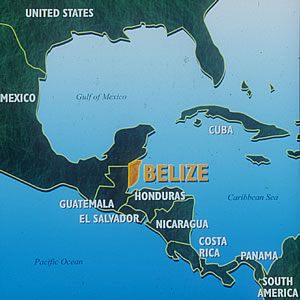One of the countries Susie and I explored shortly after our marriage was Belize. When we flew into the capital, we immediately flew out to one of the offshore islands where I suggested it would be a new found paradise for us. As we walked the beach in front of the hotel, we saw armed guards paroling bringing back memories of the Dominican Republic. If you are not a “belonger”, you do not belong there. As I look at the other Central American Countries, none make any sense for somewhere I would want to live except Panama, case closed. Here is a great paper on why you might want to reconsider a move there or at least go in with your eyes wide open. I have inserted a link to the PDF Document so you can read the entire paper.
By Julie López
Inter-American Dialogue Working Paper January 15, 2013
The Inter-American Dialogue is pleased to publish this working paper by Julie López, an independent journalist from Guatemala who covers regional crime and security issues. Our aim is to stimulate a broad and well-informed public debate on complex issues facing analysts, decision makers, and citizens concerned about Latin America’s policy agenda.
In this working paper, López offers an in-depth look at the security landscape in Belize, a country too often ignored in regional policy discussions, but one which faces criminal challenges similar to those of its larger Central American neighbors. Combining policy analysis and journalistic accounts based on her recent stint in Belize, López examines the political, social, geographical, and institutional factors that have contributed to Belize’s role as a transit point in the international drug trade. She also discusses the rise of other illicit enterprises, including arms trafficking and human smuggling and looks at the impact of growing gang activity. Finally, López analyzes national policy alternatives being explored in Belize, such as marijuana decriminalization and a state-sponsored gang truce, and the particular challenges the country faces in integrating into the Central American regional security framework.
This working paper is part of a series of studies carried out through the Dialogue’s initiative on security and migration in Central America and Mexico. The project works with leading think tanks, research centers, and independent journalists in Mexico and Central America on these two pressing policy challenges. Our work seeks to influence the policy and media communities in the United States, Mexico, and the nations of Central America; introduce Mexican and Central American viewpoints into policy debates and discussions in Washington; and promote fresh, practical ideas for greater cooperation to address security and migration challenges.
This major Dialogue initiative has featured three important meetings. The first, in Washington in July 2011, focused on the challenges posed by current migration and security crises in the region and examined the prospects for shaping US policy on these issues. The second meeting in Guatemala in February 2012—featuring special guests President Otto Pérez Molina and Attorney General Claudia Paz y Paz—addressed increasing criminal violence in the northern triangle countries and cooperative strategies for future action. In October 2012 in Managua, the Dialogue held the third meeting of the initiative to compare Nicaragua’s security situation to the rest of the region and to examine its unique police model.
We are pleased to recognize the generous assistance provided by the Tinker Foundation for the work carried out under this initiative.
